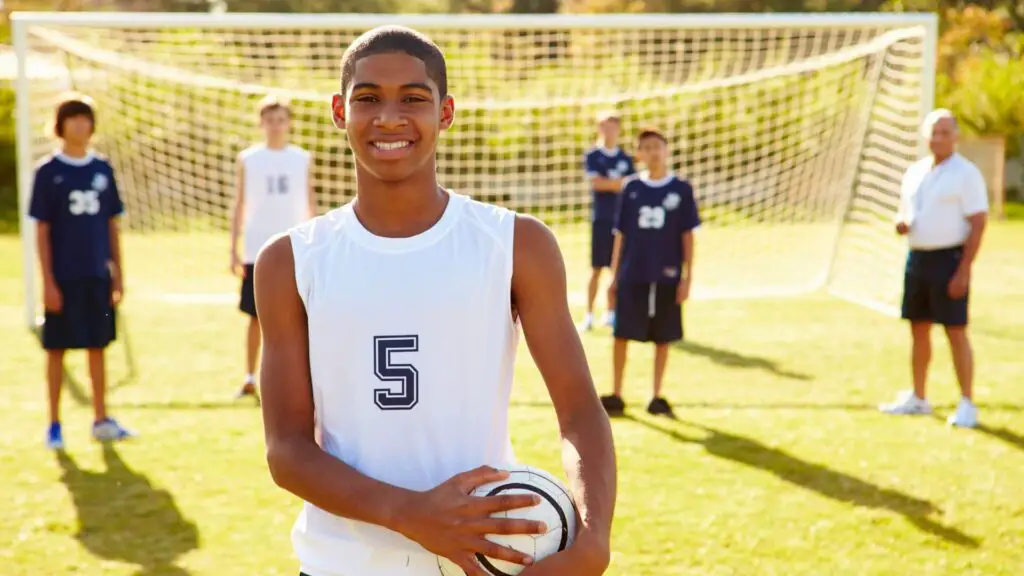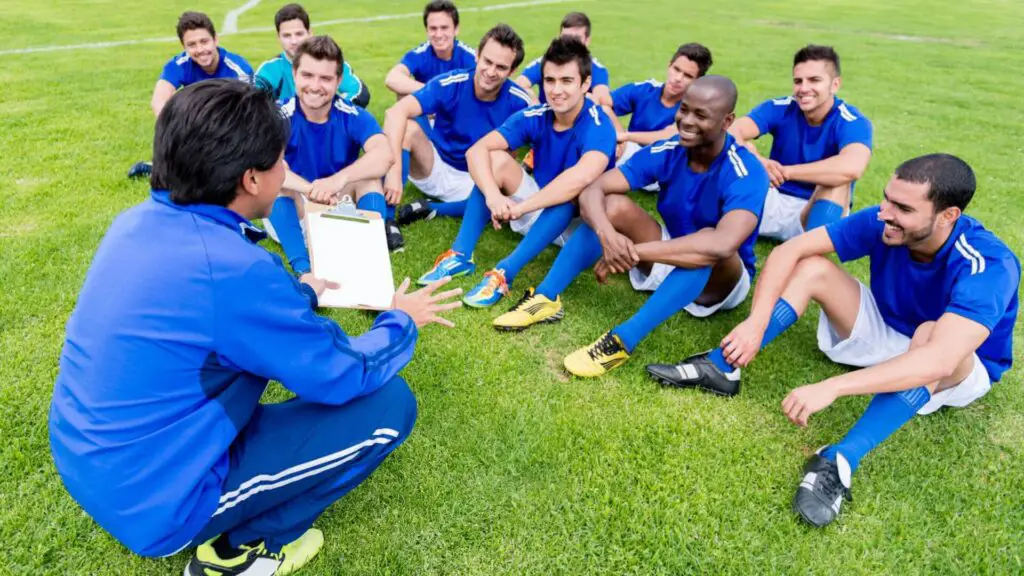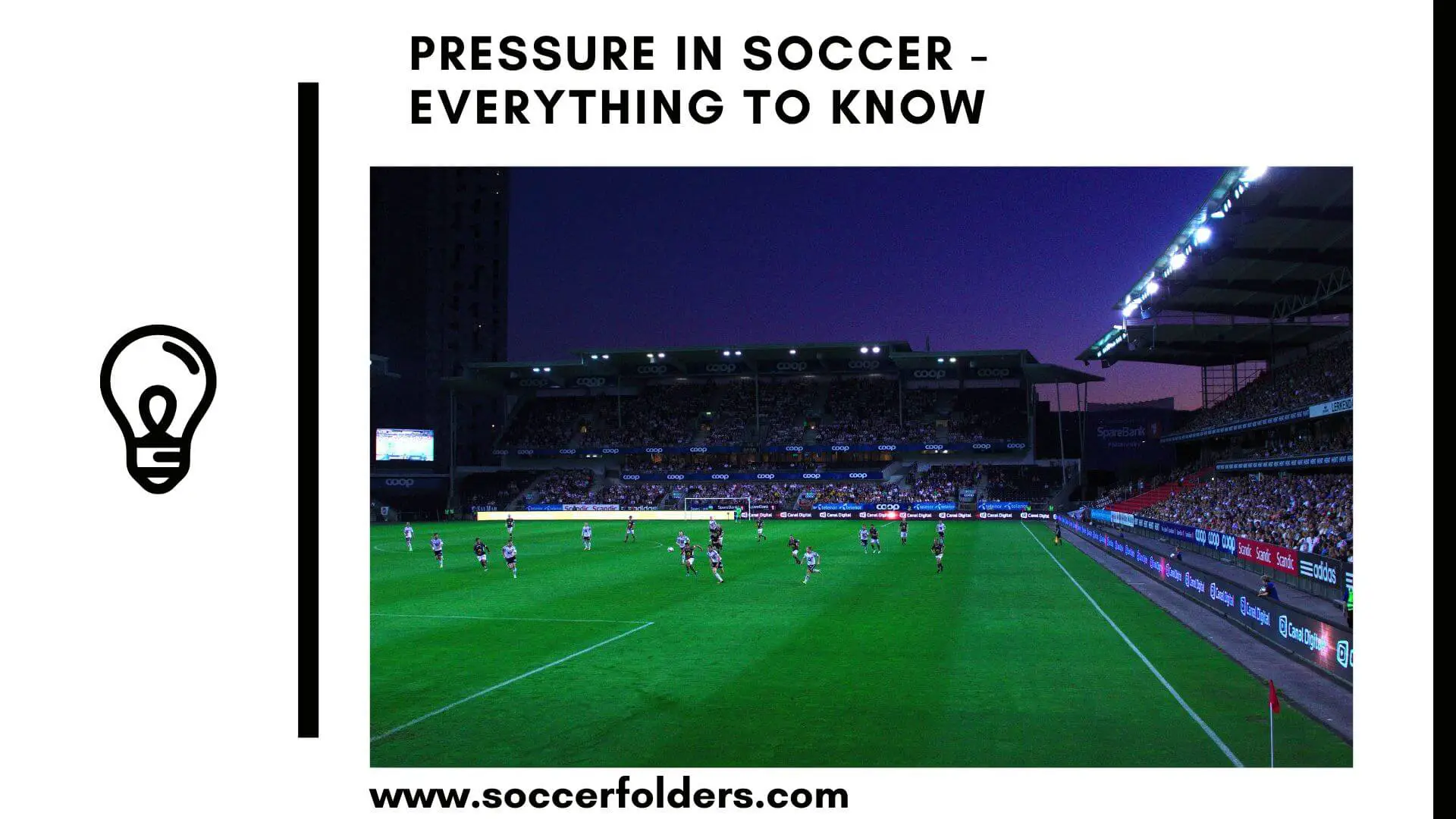Soccer is a sport that requires a unique set of skills and abilities. One aspect that sets it apart from other sports is the pressure that players face both on and off the field.
Whether it’s the pressure to perform, lead their team, or represent their country, soccer players are constantly under the microscope.
In this blog post, we’ll explore the different types of pressure in soccer, their impact on players, and how to handle it effectively.
By the end of this article, you’ll have a better understanding of the crucial role that pressure plays in the sport of soccer and how to manage it.
Let’s get right into it.
Quick Navigation
- What does Pressure mean in Soccer?
- How does Pressure Affect Soccer Players?
- How do you Break Pressure in Soccer?
- The effects of pressure on different positions in soccer, such as forwards, midfielders, defenders, and goalkeepers
- The role of pressure in game preparation, including tactics and strategies for dealing with it during a game
- The impact of pressure on young or inexperienced players and the importance of developing mental toughness from an early age
- The Role of Sports Psychology in Helping Athletes Cope with Pressure
- Final Word
What does Pressure mean in Soccer?
Pressure in soccer refers to the stress or anxiety that players experience in response to the demands and expectations placed on them. It can come from many different sources, including coaches, fans, media, and even teammates.
There are several types of pressure that soccer players may face, including:
- Performance pressure: This type of pressure comes from the expectation to perform at a high level in every game. It can be especially intense for players who are expected to be leaders on their team or carry the weight of their team’s success on their shoulders.
- Result pressure: Result pressure is the stress that comes from needing to win. In soccer, a single result can have a huge impact on a team’s overall success, so players are under a lot of pressure to perform well in each game.
- Media pressure: With the increasing presence of social media and the 24-hour news cycle, soccer players are constantly in the public eye. The media can be critical of players’ performances and create a lot of pressure for them to perform at a high level.
- Injury pressure: Injury pressure is the stress that comes from being injured and not being able to perform at the same level as before. Injuries can also affect a player’s future and career, so the pressure to recover quickly can be intense.
How does Pressure Affect Soccer Players?
Pressure can affect soccer players in several ways. Some of the most common effects of pressure include:
- Reduced performance and decreased confidence
- Increased stress and anxiety
- Negative impact on focus and concentration
- Increased physical tension and decreased muscle relaxation
- Difficulty executing technical skills
- Decreased motivation and reduced enjoyment of the game
So, pressure can have a significant impact on soccer players, both physically and mentally.
Physically, pressure can also cause players to make mistakes, such as misjudging a play or miscommunication with teammates.
Mentally, it can also cause players to lose confidence, feel overwhelmed, and experience self-doubt.
This can lead to a lack of focus and poor decision-making on the field, ultimately impacting the team’s performance.
How do you Break Pressure in Soccer?

Breaking or handling pressure is an important part of being a successful soccer player. Here are some tips for managing pressure effectively:
- Focus on the process, not the outcome: It’s important to focus on the process of playing the game, rather than just the outcome. This means focusing on executing the right techniques and working with your team, rather than just trying to win.
- Stay positive: Maintaining a positive attitude is crucial when under pressure. This can help players stay focused, confident, and motivated, even in challenging situations.
- Prepare mentally: Preparing mentally for games is just as important as preparing physically. This can involve visualization, positive self-talk, and setting achievable goals. It can also involve taking deep breaths, practising mindfulness, and engaging in relaxation techniques to reduce anxiety and stress.
- Communicate with your team: Good communication is key to success in soccer, and it can also help players manage pressure. Talking to your teammates about how you’re feeling and working together to find solutions can help alleviate stress and create a positive team dynamic.
- Seek support: It’s okay to reach out for help if you’re feeling overwhelmed. Whether it’s talking to a coach, therapist, or friend, seeking support can help you cope with pressure and improve your overall well-being.
- Practice self-care: Taking care of yourself physically and mentally is important for managing pressure in soccer. This can include eating a healthy diet, getting enough sleep, and engaging in physical activity or hobbies outside of the sport.
The effects of pressure on different positions in soccer, such as forwards, midfielders, defenders, and goalkeepers
The effects of pressure in soccer can vary depending on the player’s position on the field.
For example, forwards and attacking players often face pressure to score goals and create opportunities, while defenders and goalkeepers are under pressure to prevent goals and maintain a clean sheet.
Midfielders are responsible for controlling the tempo of the game and balancing offense and defense, so they may experience pressure in both areas.
Each position has its unique challenges and demands, and players in different positions may experience different levels of pressure during a game.
It’s important for players to understand the specific demands of their position and to develop strategies to manage the pressure they face.
This may involve focusing on the process, staying positive, preparing mentally, communicating with teammates, seeking support, and practising self-care.
The role of pressure in game preparation, including tactics and strategies for dealing with it during a game

Pressure is an integral part of the game of soccer and can play a significant role in game preparation and tactics.
To handle pressure effectively during a game, players need to prepare mentally and physically beforehand.
This may involve developing a positive mindset, focusing on the process, and setting achievable goals.
It’s also important for players to understand their role on the team and to work with their coaches to develop tactics and strategies for dealing with pressure during a game.
This may involve focusing on team communication, staying positive and motivated, and using techniques like deep breathing and visualization to reduce anxiety and stress.
By preparing for the pressure they will face during a game, players can build mental toughness and resilience, and be better equipped to handle the challenges of the sport.
Ultimately, pressure can be a positive force that drives performance to new heights, but it’s up to each player to prepare themselves mentally and physically to handle it effectively.
The impact of pressure on young or inexperienced players and the importance of developing mental toughness from an early age
Young or inexperienced players can be particularly vulnerable to the effects of pressure in soccer.
As they are still developing their skills and gaining confidence, pressure can have a significant impact on their performance and well-being.
Young players need to develop mental toughness and resilience from an early age, so they are better equipped to handle the demands of the sport as they progress in their careers.
This may involve working with coaches and sports psychologists to develop a positive mindset, focus on the process, and develop strategies for dealing with pressure.
It may also involve building a strong support system and engaging in physical and mental self-care.
Ultimately, the impact of pressure on young or inexperienced players highlights the importance of developing mental toughness from an early age and supporting young athletes as they progress in their careers.
The Role of Sports Psychology in Helping Athletes Cope with Pressure
Sports psychology plays a crucial role in helping athletes cope with pressure in soccer.
Sports psychologists are trained to help athletes develop mental toughness, resilience, and a positive mindset, and to work with them to develop strategies for dealing with the demands of their sport.
This may involve helping athletes understand the nature of pressure and how it affects performance, teaching them techniques for reducing anxiety and stress, and working with them to build confidence and develop a positive self-image.
Sports psychologists may also work with athletes to develop goal-setting and visualization techniques and to help them focus on the process of playing their sport, rather than the outcome.
Final Word
Pressure is an inevitable part of playing soccer, but it’s important to understand its impact and learn how to handle it effectively.
By focusing on the process, staying positive, preparing mentally, communicating with your team, seeking support, and practising self-care, you can manage pressure and improve your performance on the field.
Remember, pressure is a natural part of the sport and every player faces it at some point in their career.
But by embracing it and learning to manage it effectively, players can turn pressure into a positive force that drives their performance to new heights.



